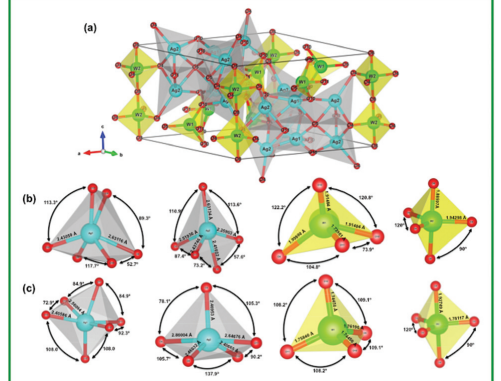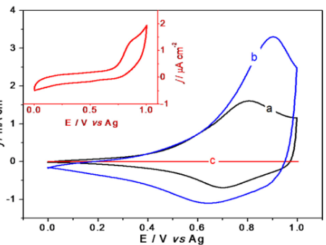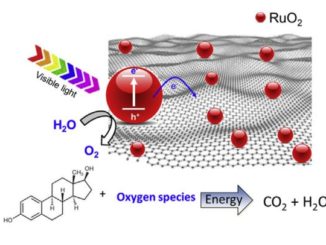
Synthesis and characterization of metastable beta-Ag2WO4: an experimental and theoretical approach
Abstract: Metastable silver tungstate (beta-Ag2WO4) has attracted much attention lately because of its many potential applications. However, the synthesis of metastable phases of inorganic compounds is challenging because of the ease of transformation to the stable phase. We have overcome this challenge and have successfully synthesized beta-Ag2WO4 microcrystals using a dropwise precipitation (DP) method in aqueous media at low temperature. The microcrystals were characterized by X-ray diffraction (XRD), including powder X-ray diffraction structural determination, field-emission scanning electron microscopy (FE-SEM), and micro-Raman/ultraviolet-visible (UV-vis) diffuse reflectance spectroscopy. To complement the experimental data, we present first-principles quantum-mechanical density functional theory (DFT) calculations. Using XRD data, Raman/UV-vis data, and the determined optical band gap, together with geometric optimization calculations, we confirmed the structure of this compound. beta-Ag2WO4 has a hexagonal structure with a P6(3)/m space group. The building blocks of the lattice comprise two types of W-O clusters, [WO4] and [WO5], coordinated to four and five O atoms, respectively, and two types of Ag-O clusters, [AgO6], and [AgO5], linked to six and five O atoms, respectively. This type of fundamental study, combining multiple experimental methods and first-principles calculations, helps to obtain a basic understanding of the local structure and bonding in the material.
Authors: Lemos, PS; Altomare, A; Gouveia, AF; Nogueira, IC; Gracia, L; Llusar, R; Andres, J; Longo, E; Cavalcante, LS
DALTON TRANSACTIONS
Volume: 45 Pages: 1185-1191 Published: 2016
PDF: Synthesis and characterization of metastable beta-Ag2WO4 an experimental and theoretical approach
DOI: 10.1039/c5dt03754a




